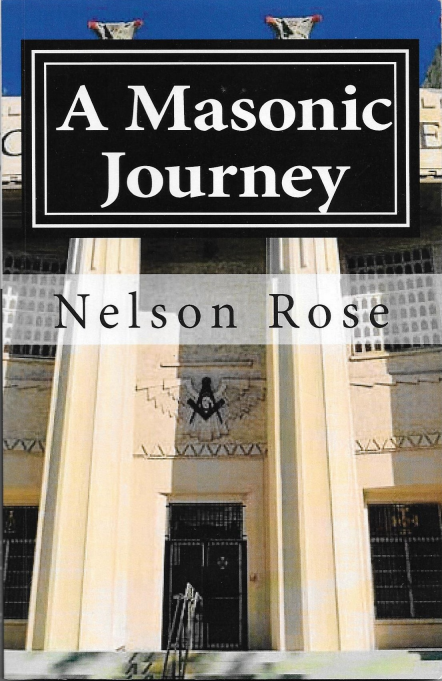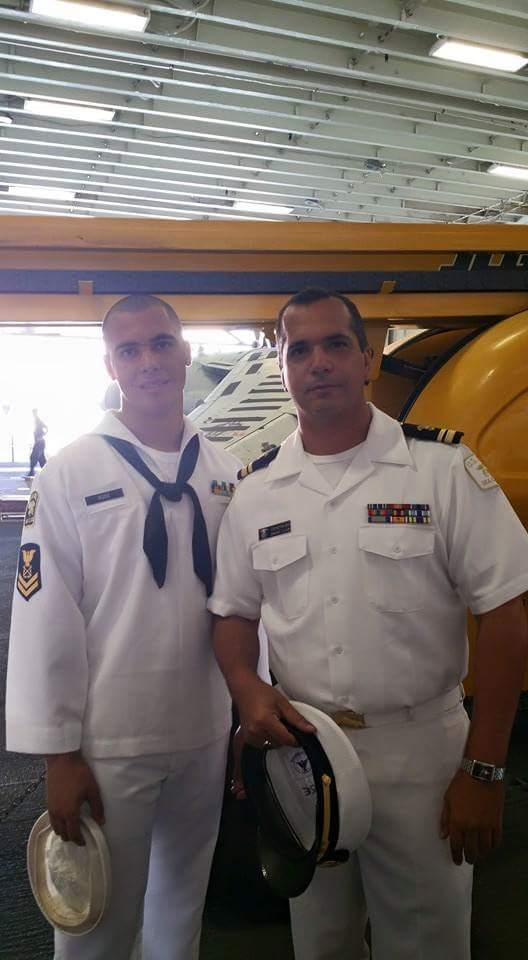A Masonic Journey
Nelson Rose
A Book Review By Frederic L. Milliken
I have read many a Masonic book in my time. Some of them are so complicated, grandiose and difficult to read that sometimes I think I am back in school reading a textbook. That is why reading Nelson Rose’s book is a welcomed change of pace.
Rose has written a book that reads easily and comfortably and you are able to move right along. As Rose says, “I would like to focus on the journey itself.”
He continues, “Perhaps while you read this you can reflect on where you fit, not just within the walls of your lodge, but in your community or even you own home. All of us are bricks in the temple of humanity. When one considers the differences in the bricks used on the outer walls versus the inner chambers, it is easy to see that our diversity does not prevent our unity and that while we can choose to stand alone, we miss out on the grandeur of being a piece of something greater.”
So we get to read how Rose felt being raised to the sublime degree of Master Mason and how he felt being the Worshipful Master of his Lodge.
We also get to read how Rose feels on Masonic subjects. On education he feels the study of Masonic Philosophy is more important than learning ritual.
On Brotherly Love he says, “Our membership is suffering not because of changes in society, but because of our inability to keep the normal cut-throat attitudes of society outside the lodge.” Society isn’t doing so well in Rose’s eyes. “Then I look at our fraternity,” he says. I often wonder if society is suffering as a result of the watered down state of the Craft.”
Nelson Rose and Son
We can do it; we can be great Rose concludes as he takes us through the concepts of From Darkness to Light, Brotherly Love, Further Light, On the Level, Achieving Balance, Toleration and the Path to Perfection.
“When properly applied all the lessons of Freemasonry will enable a man to find that balance which enables him to spread his influence and love like the mortar of friendship and Brotherly love in all aspects of his life,” Rose exhorts us.
Again he reminds us, “The hopes and fears of all humanity are universal; how we deal with them are not. The lessons of Masonry are designed to help, aid, and assist a man along the journey of life.”
Rose continues,”We should let the world observe how Masons love one another and we should show the world our love for ALL our fellow man. Of all the organizations known to man, it is Masonry that has focused on a communal and fraternal system of morality. We work together for the good of all, not just ourselves.”
We get a glimpse of Masonic education after Lodge as Masons of Rose’s Lodge go out for pub and grub afterward. This is a very common phenomenon in Freemasonry. A great back and forth and bonding occurs over libation and breaking bread together. Rose lets us in on a bit of that after Lodge conversation with his Brothers.
He also describes some of his in Lodge doings. But the best part of the book comes when Rose waxes philosophical. He actually spells out what he is thinking. Like:
“The Creator or Grand Architect only designs – thus the name architect. It is the individual choices that a man makes that dictate what will become of his life and what direction he travels is based on his own moral compass. Among us are the hints and clues that the Architect has placed in the most sublime ways.”
And then there is, “It is no coincidence that the many men of science who are credited with redefining what was thought of as divine or supernatural, into the laws of nature and science, were Freemasons.”
Followed by, “The ability to learn how to think versus what to think is perhaps the greatest lesson I have learned from my studies in Freemasonry.”
There are a lot of Roseisms in this book. We can’t give them all to you; you’ve got to read the book yourself.
The last third of the book is devoted to a detailed explanation of Masonic lessons that are a part of Masonic education. So we see the importance of the Five Senses and The Seven Liberal Arts and Sciences, followed by some of the prominent symbols of Freemasonry – The Square, The Compasses, The letter G, The Quadrant, The Sun and finally The Tenets of Freemasonry. Rose concludes the book with some words to the wise for Freemasons and what we should be standing for.
The real gem in this part of the book that we haven’t touched on yet was Rose’s Masonic Education lecture that he delivered in Lodge. So all the non Masons that read this book if you want to know what goes on inside the closed doors of the guarded Lodge Room, here is your chance. And what makes it so great is that it was an unprepared lecture as Rose was drafted at the last minute, so it was delivered from the heart.
In his lecture Rose told his Lodge, “The open Bible reminds us that it is the moral law and the essence of deity that sits in the center of the Lodge. Without either, the lodge could not be opened or any obligation be taken. It is this symbol that reminds us that we as individuals are not the center of the Lodge and that we should govern our actions to a higher standard.”
“A Masonic Journey” is not only a book that should be in every Mason’s library but it is also a great book to give to someone who would make a good Mason or is contemplating becoming one. Very rarely do we get to follow the personal thoughts of a Freemason and learn from him personally how the Craft has benefitted him and society as a whole. It makes this book differ radically from a theoretical treatise on Freemasonry and it is an opportunity you should not miss.
Nelson Rose is a member of the Grand Lodge of Florida and the United Grand Lodge of England and writes for his Blog –
PRACTICAL PHILOSOPHY FOR A WORLD IN NEED OF LIGHT – HTTPS://QUEST4LIGHT.WORDPRESS.COM/


